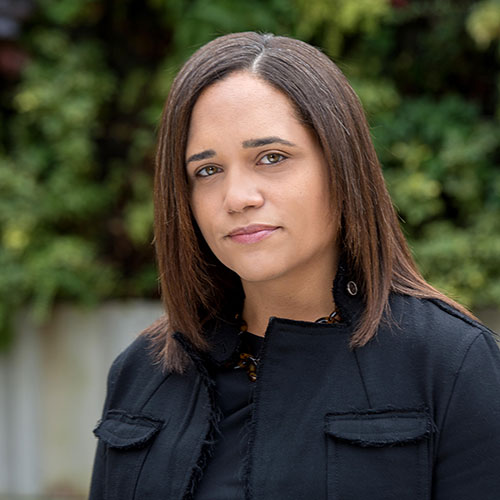After an Oregon Bike Crash, Our Bicycle Accident Lawyer in Portland Can Help You Recover Compensation
Although cycling is generally considered a safe activity to do, each year in the United States more than 1,200 people die in bicycle accidents. The majority of bicycle accidents occur at non-intersection locations, meaning that cyclists were hit by a car traveling alongside the rider. Portland is nationally recognized as one of the most bike-friendly cities in the country. However, it is not immune to its share of serious accidents.
Unfortunately, bike accidents can cause serious personal injuries, including traumatic brain injuries, broken bones, back injuries, and other disabling injuries. Some victims may suffer catastrophic injuries that result in their wrongful death. Oftentimes the medical bills, lost wages, and other damages caused by a bicycle accident can be significant, even overwhelming. A bicycle accident lawyer in Portland can help recover compensation for these expenses and for conscious pain and suffering and other damages due to a crash.
Here at the Manners Law Firm, we offer free consultations and case evaluations for victims and their families to learn more about their legal rights to compensation under Oregon law. There is no obligation to sign up, but if you choose to hire our personal injury law firm and if we accept your case, we pay the upfront litigation costs and only get paid our legal fees after we recover compensation for you in a settlement, verdict, or another type of award. Even if you are unsure who is at fault for your bike crash, schedule that free appointment to explain what happened to our bicycle accident lawyer in Portland. To get started, contact us today by dialing 503-468-7937.
Injuries from a Bicycle Accident in Portland
Cyclists are often seriously injured in a bicycle accident for several reasons. First, they often wear little if any protection, sometimes that being just a helmet. Second, there is nothing between them and the other vehicle or the pavement – meaning that they often suffer from both the primary impact (the vehicle) and the secondary impact (pavement or another object). Lastly, even a minor bumper tap to a back wheel can launch a cyclist right into the ground and cause serious injuries.
For these reasons, bicyclists often suffer serious, disabling, or catastrophic personal injuries. Some of the most common types of personal injuries include the following:
- Traumatic brain injuries, including concussions, coup-contrecoup injuries, diffuse axonal injuries, penetrating head injuries, and related harm
- Spinal cord injuries, including paralysis, paraplegia, quadriplegia, and other nerve injuries
- Organ injuries, including a liver laceration, heart contusion, ruptured spleen, bruised lungs, kidney injuries, and other related organ harm
- Broken bones, including compound fractures that require surgical treatment
- Significant lacerations or disfigurement, including large scars
- Amputations, especially of a hand or foot
- Neck injuries or back injuries, including an annular tear, herniated disc, compression fracture, or another type of nerve impingement or structural harm to the spinal column
- TMJ or other jaw injuries
- Nerve injuries, including cranial nerve or brachial plexus nerve injuries, and
- Other serious or catastrophic injuries at our bicycle accident lawyer in Portland could handle for you.
How to Recover Compensation for a Bicycle Accident in Oregon
After you have been injured in a bicycle accident, you will need to prove certain things in order to recover compensation for your personal injuries and your financial damages. This includes proving liability, or fault. The most common way to do that is by asserting a claim that the defendant was negligent. In a bicycle accident, defendants are negligent when they owe a duty, breach that duty, and such breach causes a victim damages.
Proving a Duty and a Breach of That Duty
Under Oregon law, motorists owe others on or near a roadway a duty to use reasonable care. This means that motorists must follow the traffic law, drive defensively, and otherwise act in a reasonable manner to avoid foreseeable injury to others. Drivers who drive drunk, speed, text while driving, run a red light, or who otherwise fail to drive reasonably, are often breaching that duty. Generally, liability is established once these two elements have been proven, and now a victim must prove causation and damages.
It is also important to note that there is a shortcut to proving these two elements. If a defendant has violated a statute that was meant to protect the victim from the very harm that occurred, a defendant may be found to be “negligent per se.” This is a legal doctrine that automatically establishes liability against a defendant who violates a law and harms a plaintiff. Although a plaintiff will still need to establish causation and damages, this doctrine can help force a defendant into settlement discussions that are favorable for a plaintiff early in a case.
Proving Causation: How a Defendant Is a Proximate Cause of an Injury
Once it is established that a defendant had a duty and breached that duty, a victim also needs to prove causation and damages. Causation means proving that the defendant’s breach was a proximate cause or substantial factor in causing the victim’s damages. For instance, a defendant running a red light and T-boning a car that had a green light is very likely to be the proximate cause of any injuries suffered by the car with the right-of-way.
Oftentimes, a defendant will try to argue that a victim was the cause of his or her bicycle accident or personal injuries. However, although an insurance adjuster might tell you otherwise, a victim who is partially at fault for his or her bicycle accident may still be entitled to recover compensation as long as they are 50% or less at fault for the crash. That’s because Oregon has adopted a modified comparative fault statute, which means that bicycle riders will have their award reduced by their proportional share of fault – but not be barred from recovering compensation unless they were 51% or more at fault.
Establishing Damages and Harm
Finally, a victim will need to prove his or her damages. This includes being able to establish medical bills and lost wages, which is sometimes achieved by using an economist or vocational expert. It also requires a victim to prove his or her personal injuries. That means proving conscious pain and suffering, or the agony, discomfort, ache, and other physical and emotional suffering from a victim’s injuries. This has both a subjective (how it felt for the victim) and objective (quantifiable proof) component.
Usually treating physicians will be able to testify as to the injuries of a victim caused in a bicycle accident. However, sometimes a plaintiff may want to hire medical experts to help prove a case – especially causation if there are pre-existing injuries. Further, if a victim has a very serious and disabling injury, a victim may also want to hire a life care planner or another type of vocational expert to prove how a victim’s injuries and disability will impact the victim in the future. This can become a complicated inquiry after a bike crash, which is why victims should hire an experienced bicycle accident lawyer in Portland to help them.
Injured in an Oregon Bike Crash? Call Our Experienced Bicycle Accident Lawyer in Portland for Help
If you or a loved one were seriously injured in a bicycle accident in Oregon, you may be entitled to compensation for conscious pain and suffering, medical bills, lost wages, and other damages. Although a defense lawyer and an insurance adjuster will often claim that you are not entitled to any compensation, or will offer you just nominal compensation, victims are often surprised to learn that they are entitled to a lot more compensation after they speak with an experienced bicycle accident lawyer in Portland.
At the Manners Law Firm, our compassionate and experienced legal team can help investigate your claim, review your medicals, and zealously advocate for the compensation that you are entitled to under Oregon law. Our attorney has significant experience previously representing insurance companies and insureds in these cases; therefore, we won’t let defense lawyers or insurance adjusters minimize your injuries and financial losses. Contact us today to learn more about your rights and how we can help protect them by calling 503-468-7937 or by sending us a message here.


